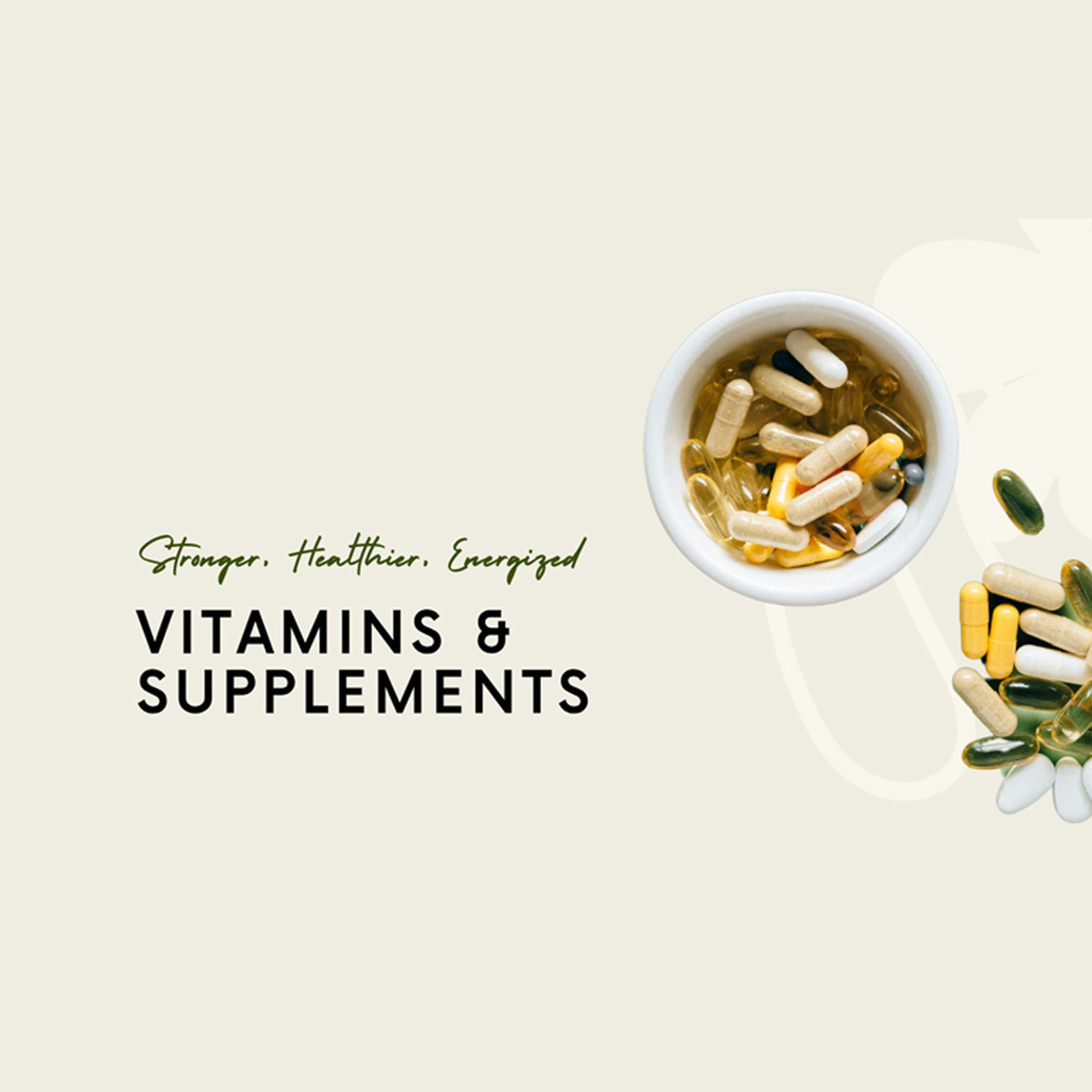Stronger, Healthier, Energized: The Benefits of B Vitamin, Iron & Calcium Supplements

When it comes to everyday health, most of us know the basics: eat a balanced diet, stay active, and get enough sleep. But behind the scenes, your body relies on a steady supply of nutrients—and sometimes extra support—to function smoothly. Among the most essential are B vitamins, iron, and calcium, which contribute to energy, blood health, and strong bones.
In this guide, we’ll explore why these nutrients matter, how to get enough through food, and when additional intake may give you an edge. Whether you’re new to nutrition or already take daily support, you’ll gain a clearer picture of how B vitamins, iron, and calcium work together for lasting health.
|
Nutrients are like the building blocks and fuel that keep your body running. Without them—or without supplementation when diets fall short—everything from your energy to your immunity can be affected.
|
 |
B Vitamins: Energy, Mood & Metabolism
The “B Vitamins” are really a family: B1, B2, B3, B5, B6, B7, B9, and B12. Each one has a slightly different role, but together they’re often taken as a B-complex supplement to support energy and metabolism.
 |
Food vs. Supplements
Whole grains, eggs, and leafy greens provide plenty of B’s, but not everyone gets enough—especially B12, which is mostly in animal foods. Vegans and vegetarians often rely on fortified foods or B12 supplements.
Supplement Tips
A daily B-complex can be an easy way to cover all bases. Look for active forms like methylcobalamin (B12) and methylated folate, which absorb more efficiently. While generally safe, excess doses of B6 or niacin can cause issues, so it’s best to stick to recommended amounts.
“Supplements aren’t a replacement for food, but they’re a powerful safety net when your diet falls short.”
Iron: Vital for Blood, Brain & Immunity
Iron is critical for carrying oxygen through the blood, and supplementation is often necessary when levels dip too low.
 |
Who Needs Supplements
Iron deficiency is common worldwide. Women who menstruate, pregnant women, infants, and vegetarians often benefit from iron supplements to avoid fatigue, dizziness, and anemia.
Food vs. Supplements
Red meat, poultry, and fish provide heme iron, which absorbs more efficiently than the non-heme iron in beans and spinach. But for many, diet alone isn’t enough—making iron supplements an important safeguard.
Supplement Tips
Iron supplements come in forms like ferrous sulfate, ferrous gluconate, and heme iron capsules. Since iron can upset the stomach, try taking supplements with food or vitamin C to improve absorption. Avoid taking iron supplements alongside calcium, since they compete for absorption. Always confirm deficiency with a blood test before supplementing.
 |
Calcium: Building Strong Bones & More
Calcium is another nutrient where supplements are widely used, especially for bone health in adults and older populations.
 |
Who Benefits from SupplementsChildren and teens need calcium to build bone mass, while adults require steady intake to maintain it. Postmenopausal women often turn to supplements due to a higher risk of deficiency. Food vs. SupplementsDairy, leafy greens, and fortified milks are strong sources. But if you avoid dairy or don’t reach daily targets, a calcium supplement can make a difference. Supplement TipsChoose the right form: calcium carbonate (best with meals) or calcium citrate (absorbs anytime and is gentler on digestion). Avoid taking supplements in very high doses, since excess calcium may cause kidney stones. |
 |
How to Get Enough: Food vs Supplements
 |
Ideally, food comes first. But supplements are there to fill gaps and add peace of mind. Food FirstA nutrient-rich day might look like this:
|
When Supplements Help
- B Vitamins: Useful if you’re vegan, pregnant, or often fatigued.
- Iron: Consider if you’ve tested low or belong to a higher-risk group.
- Calcium: Important if you avoid dairy or have greater needs.
Timing matters—pair iron supplements with vitamin C, and keep iron and calcium supplements spaced apart.
Overdose Risks & Interactions
Supplements can help — but too much becomes dangerous. Below are commonly used thresholds and what overdosing can cause. If you’re unsure about your dose, check with a healthcare provider.
 |
Important interactions:
• Calcium can inhibit iron absorption when taken together, especially with single-meal doses—so separate calcium and iron supplements by a few hours when possible.
• High levels of certain nutrients can also interfere with medications (for example, niacin with some cholesterol or diabetes drugs, or calcium with antibiotics). Always review your intake and prescriptions with a clinician or pharmacist.
Bottom line: ULs exist for a reason. Don’t assume “more = better.” Follow product labels, stick to recommended limits (or your clinician’s instructions), store supplements safely away from children, and call Poison Control or emergency services immediately if you suspect an overdose.
B Vitamins, Iron, and Calcium supplements may not be flashy, but they’re some of the most reliable ways to support energy, brain power, and bone strength.
Think food first, then use supplements as a safety net. With the right supplement choices—guided by diet, lifestyle, and your healthcare provider—you can protect your energy, maintain healthy blood, and keep bones resilient.
In short, smart supplementation today is an investment in stronger health tomorrow.